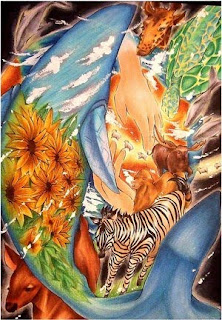
The 2 myths Pandora, a Greek myth and Orphan boy, an African myth, warn us that curiosity can lead to change, both negative and positive. Examples of this are, when curiosity leads to Pandora to open the box, and causes humans to suffer. While in Orphan Boy the old man follows Kileken which unveils the Orphan Boy’s secret and the old man to undergo loneliness. Whereas the positive effect of curiosity was in Pandora when all the creatures shoot out of the box except for one, Hope, this is saying that there is always light at the end of the tunnel, and in Orphan boy the man realizes his mistake, realizes that sometimes you have to trust the person and bury your curiosity 6 feet under. Orphan Boy and Pandora are just 2 examples of myths that put a spotlight on curiosity, and its positive and negative effects.
Pandora Photo- http://pygar.deviantart.com/art/Pandora-115764837
Orphan Boy Photo- http://www.amazon.com/Orphan-Boy-Tololwa-M-Mollel/dp/0395720796#reader

